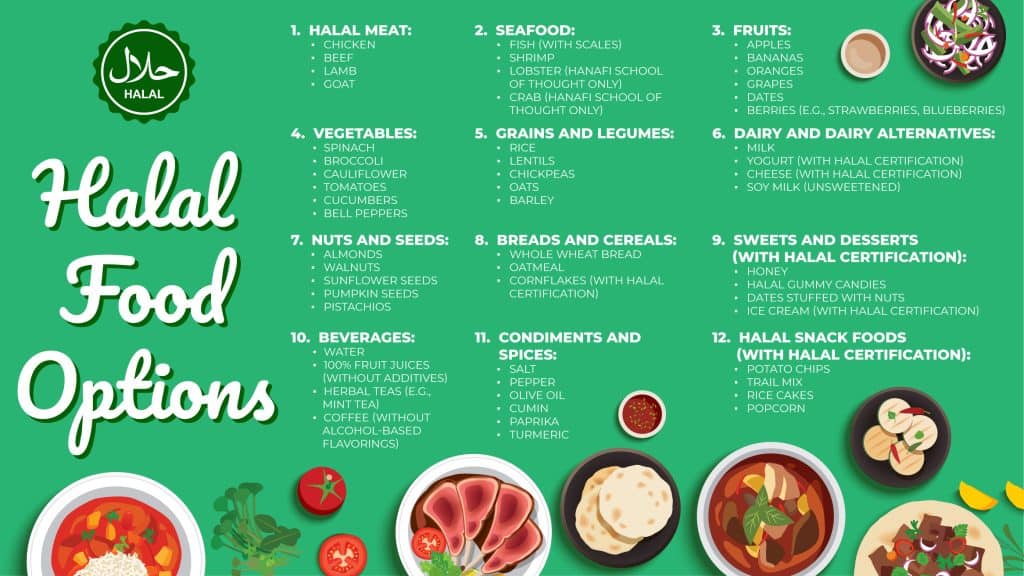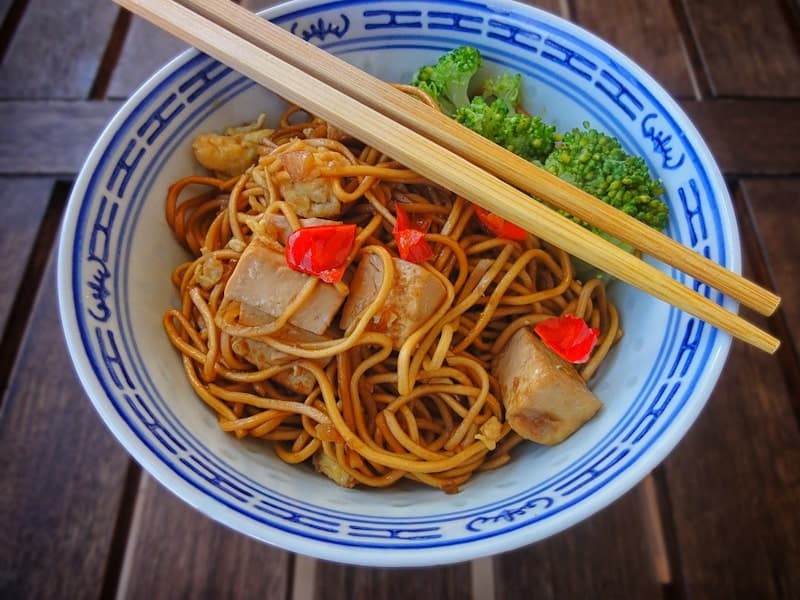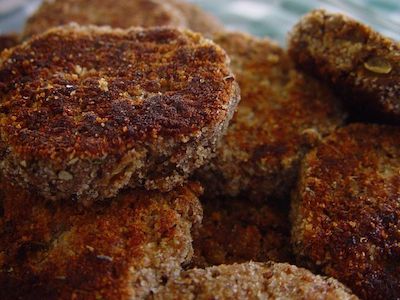Is Tofu Halal? (Answered!)
Halal foods are permissible for Muslims to eat. In contrast, haram foods are forbidden. Generally, foods that aren’t haram or forbidden are considered halal and permissible.
For people who aren’t Muslim or want to understand more about halal foods, it’s often asked – is tofu halal?
Yes, tofu is halal. Tofu is a plant-based food, and there’s nothing in its preparation process that is forbidden to Muslims. Let’s explore this further and answer many of the questions asked.
What Does It Mean When Food Is Labeled Halal?
It may be easier to begin by explaining what foods are haram or forbidden.
For example, Muslims are not allowed to eat foods containing pork, carrion, blood, or alcohol.
In addition, animal meats like lamb, beef, goat, and chicken must be killed and prepared in a specific way.
When meat and prepared foods are made according to these rules, using the methods allowed by Islam, they are labeled “halal.” Also, any food that is not forbidden is considered halal or permissible.
So, “halal” is a specific method of preparing meat and animal-based foods and classification for all other foods.
Because of how modern foods are prepared and processed and the possibility of different ingredients being mixed in the food preparation industry, many Muslims choose to eat a vegetarian diet when away from home.
Plant-based foods are halal, and sticking to vegetarian foods allows Muslims to make halal choices when eating foods that haven’t been prepared by a Muslim.

Is Tofu Made from Pork?
It’s a type of vegan cheese made from coagulated soy milk and contains no pork or other animal products.
Why Might Muslims Avoid Tofu?
Most Muslims do not avoid tofu because it is a famously halal food.
Tofu is an excellent source of plant-based protein and available in a wide range of vegan and vegetarian food preparations, which are almost all halal.
However, here are a few reasons why some Muslims might avoid tofu:
They May Think Tofu Is a Milk-Based Cheese
However, tofu is similar to soft, animal-based fresh cheeses, so some Muslims may not know that it’s a vegan food.
Among milk-based cheeses, some are thickened with an animal product called “rennet,” and some of the rennet used in cheese-making may be derived from pork.
Because it may be difficult to determine whether a cheese is acid-set, chemical-set, or rennet-set, and what animal that rennet came from, some Muslims may simply choose to avoid unfamiliar cheeses.
However, tofu is not an animal cheese and is usually coagulated with calcium sulfate or acids and never from rennet.
They May Not Know How the Tofu Was Prepared
Many popular tofu dishes involve frying the tofu in animal fat to impart a crispy texture and richer flavor.
Frying tofu in pork or bacon fat is an extremely popular way to prepare it, and some tofu is even fried in this way before being packaged for sale in grocery stores.
However, if a Muslim doesn’t know what type of fat was used in frying the tofu, they may avoid it.
Tofu May Be Incorporated Into a Non-Halal Dish
Tofu is a famous ingredient in many Japanese dishes, including sushi rolls, teriyaki, miso soup, etc.
Many Japanese dishes also include mirin and other kinds of vinegar that contain some amount of alcohol.
Alcohol is haram, and many Muslims avoid Japanese foods because of the high incidence of rice wine and trace amounts of alcohol in many traditional Japanese ingredients and dishes.
Tofu May Be Used to Make Vegan ‘Pork’
A new generation of meatless “pork” products poses an ethical dilemma for many Muslims.
While the food’s ingredients and preparation methods are halal, many Muslims feel that the food’s emotion or intention may be questionable.
These foods are a subject of various debates and opinions, and individual Muslims have different feelings on the subject.
For example, a Muslim may avoid vegan “pork” products made of tofu because of the psychological and emotional impact of eating these foods.
Is Stinky Tofu Halal?
Stinky tofu is a fermented food, and alcohol is a well-known byproduct of fermentation.
Some Muslims may be concerned about the alcohol content in fermented foods and avoid them.
Because different fermented foods and beverages have different amounts of alcohol, Muslims may need to ask about each specific food or just avoid fermented foods for simplicity.
However, stinky tofu is halal. Islamic scholars agree that the trace amounts of ethanol produced during the fermentation process are not enough to make stinky tofu and most other fermented foods forbidden.
In Summary
Tofu and stinky tofu are halal foods and permissible for Muslims. This is because they’re healthy, plant-based foods without pork or other haram animal ingredients and are made with halal processes and techniques.
Tofu is also high in protein and vitamin B1, essential nutrients for Muslims who do not eat pork.
However, tofu is famously bland in flavor and is often fried or marinated with non-halal ingredients or incorporated into non-halal dishes and recipes.
As a result, Muslims who want to eat halal foods often need to read labels carefully or ask detailed questions in restaurants to ensure they are not unintentionally eating haram foods.
In addition, the proliferation of plant-based vegan meat alternatives, especially vegan forms of pork, ham, and bacon, often pose a moral dilemma for Muslims.
While these foods are halal in ingredients and preparation, it may seem that they violate the spirit and intention of keeping halal.
There’s still a wide range of opinions and practices about these foods without widespread consensus. Tofu is halal, but the overall presentation of many vegan dishes is still an open question.







